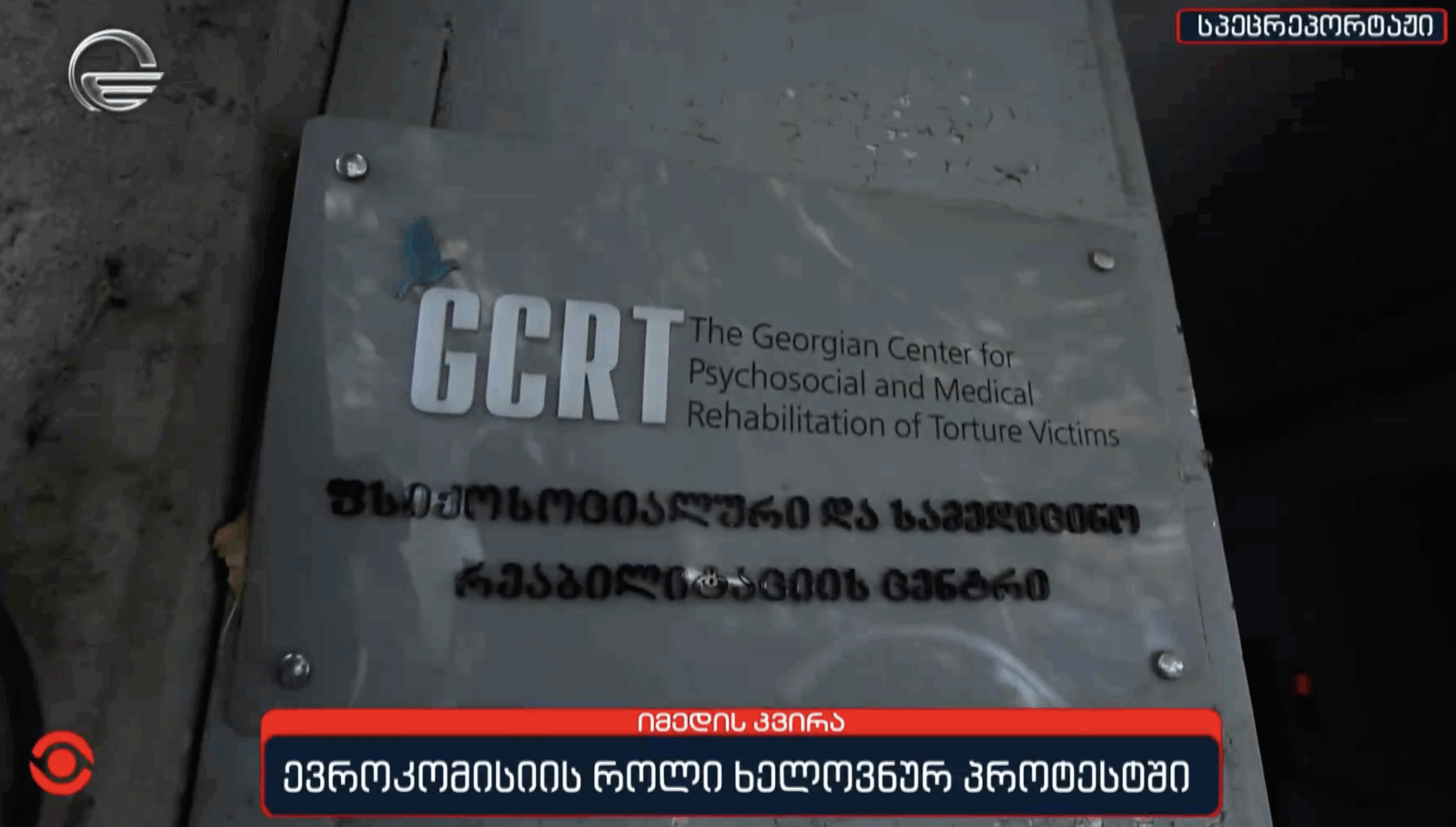Pro-government channel imedi TV has accused the European Commission of illegally funding Georgian civil society groups it says are behind anti-government protests. In a report aired on October 19, Imedi claimed that nearly one million euros were transferred to a local non-governmental organization by bypassing the Georgian version of the Foreign Agents Registration Act (FARA) through an exemption meant for humanitarian work.
The Sunday program Imedi Week claimed to have uncovered a “detailed scheme of big money transfers benefiting radical rallies while bypassing the Georgian FARA.” The report, aired on October 19, alleged that the European Commission, through its project “Emergency Support for Human Rights Protection in Georgia”, transferred 868,990 euros in two installments – in May and August – to the Georgian Center for Psychosocial and Medical Rehabilitation of Torture Victims (GCRT), a local civil society organization, which it said later distributed the money to other civil society groups “financing protests.” According to Imedi, the GCRT additionally received 110,000 euros from the Trust Fund for Victims, a victims’ reparations body connected to the International Criminal Court.
The report said that GCRT had distributed the money to eleven local CSOs: Georgia’s Future Academy, the Georgian Young Lawyers’ Association, Sapari, Indigo Foundation, Rights Georgia, the Democracy Research Institute, Temida, the Social Justice Center, the Human Rights Center, the Media Institute, and the Marneuli Democratic Women’s Association.
“The main activity of these organizations and their leaders in recent years has been supporting protest rallies,” the report said, adding, “Most of them defend people detained during protests or help post their bail.” The report also claimed that the funds from the European Commission were “used to sustain the protests and provide legal aid to participants.”
The Georgian Dream–adopted version of the U.S. Foreign Agents Registration Act (FARA) took effect on May 31. The law, a direct translation of the American FARA, requires those deemed “agents of a foreign principal” to register in a special registry administered by the Anti-Corruption Bureau. Those who fail to comply face severe penalties, including criminal prosecution and prison terms.
In August, seven Georgian CSOs said they received inspection notices under FARA from the Anti-Corruption Bureau, which is close to the ruling party and claimed they were engaged in political activities. The groups, however, have not complied. Later that month, authorities froze the bank accounts of several CSOs under “sabotage” investigation, claiming that they funded the anti-government rallies in 2024.
The law does not apply, among other exemptions, to work related to “soliciting or collecting funds and contributions within Georgia to be used only for medical aid and assistance, or for food and clothing to relieve human suffering.” Imedi claims the alleged EU money transfer took place by bypassing this exemption.
According to the Imedi report, GCRT also distributed money in September to individual human rights defenders, including lawyers who often represent protest-related detainees in court.
A network of twelve Georgian CSOs has offered free legal aid to victims of the authorities’ crackdown on freedom of assembly and association. In an October 10 joint statement, they said that “as a result of the enactment of repressive and anti-democratic laws, some organizations have been forced to suspend their work, while others continue to defend human rights with the few remaining resources and through personal efforts.”
Also Read:
- 03/10/2025 – Watchdogs: Ivanishvili-linked Lenders Shield Pro-Government TV Channels from Bankruptcy
- 02/10/2025 – SSSG Chief Mdinaradze Talks October 4, ‘Radicals,’ Planned U.S. Visit in Interview With Imedi TV
- 15/09/2025 – Imedi TV Reports New Criminal Probe Into Protests, Points at Universities
This post is also available in: ქართული
